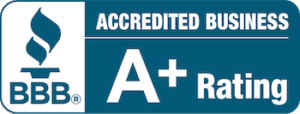Preparing for Homeownership
You can end up having a less stressful time if you’re prepared ahead. An understanding of costs involved is the first step in this preparation. Here are the major points you need to consider before finally paying for your first home.
- Are you in good money shape?
- What amount of mortgage can I take?
- Begin to save for a down payment and other home buying expenses.
- Check your Credit
- Study various mortgage options.
Start Saving Early for a Down Payment
It will be less difficult to achieve your target the more you save up early for a down payment. Securing better mortgage terms and lowering your monthly payments are some of the reasons why you should think about saving a bigger down payment.
If you only save 20% of your house’s list price for the down payment, this would be better because it would help you avoid private mortgage insurance (PMI). This insurance adds a lot to one’s monthly mortgage payments and when put into consideration in future-oriented terms, targeting twenty percent can actually save money in the long run.
If that turns out too hard during this period there are loans and credit accounts available that require less cash upfront than this percentage demands for example. Furthermore, a side savings account established exclusively for the down payment would assist in keeping you organized.
Set up another savings account just for that purpose. It will be more difficult for individuals without any specific plan regarding when or how they plan to collect enough for this purpose since they tend to spend their money elsewhere when needed.
Check and Polish Your Credit Score to Improve Mortgage Options
The mortgage terms that you qualify for depend a lot on the credit score that you have. Therefore if you have a high credit score you will be able to land on a lower interest rate which could save you much money throughout your borrowing period. You should first get to have copies of all these documents including the one with information from your credit report from three main credit bureaus; Equifax, Experian and TransUnion or any other relevant agency.
One way is by reviewing them because there might be some mistakes interfering with yours. To resolve this, dispute over such mistakes while looking at how best you can boost it through clearing due balances and maintaining lower card debts with minimal payments if any at all but not forgetting that we should not apply for any new credit accounts or credits neither buy expensive products on hire purchase should we anticipate buying a house soon.
Another thing apart from settling debts is to set up an emergency kitty. The objective behind this should be to store at least three to six month’s worth of expenses in liquid cash like one. After all, it serves as an insurance against short-term financial crises and also demonstrates your good credit score and worthiness to the people who give loans.
Mortgage Options and Financing
Exploration of various mortgage options is an important step to take during the process of purchasing a house. This is because different lenders avail different rates as well as terms hence; shopping around is crucial. Compare rates and terms by starting your research with conventional lenders then move to FHA ones before concluding with VA lenders.
Mortgage brokers can also be hired to help find the best loans for your needs. Since they have access to numerous types of mortgage loans, they can help one to find an appropriate one.
Programs like first-time home buying schemes are known to help a lot! Usually comes with deposit assistance, lower rates of interest, and better conditions for borrowing overall. Research on both local and national options so as to determine whether there is any that suits your case.
Research First-Time Home Buyer Assistance Programs and Loans

Newcomers in the property market are better off with programs that give them a hand in owning homes. Such programs offer monetary aid to enable first-time homebuyers save the initial amount that acts as a security for acquiring property. Find out about these programs under Federal Housing Administration (FHA)
To begin with, FHA loans are readily preferred by new home buyers because they allow for small cash inputs open houses when one is buying them and their qualifications in terms of credit scores tend to vary on the lower side than with regular mortgages. This means that buyers can easily purchase homes without having saved much money. Moreover, the loans usually come with attractive rates of interest which are flexible enough when it comes to qualification.
Take a look at other types of loans which require lower down payment amounts, for instance veteran (VA) loans or US Department of Agriculture (USDA) loans meant for rural residents wanting to purchase property.
Understand Closing Costs and How to Budget for Them
There are closing costs that are vital when one wants to buy a house which many people who are buying their first houses usually forget about. Including but not limited to appraisal fees, title insurance, and attorney fees, these costs usually vary between 2% and 5% of what the home costs before purchase. To avoid surprises during the final signing do not fail to incorporate them in your total budget.
Being able to budget for closing costs equates saving in advance for these particular items. But still, being ready to meet them in person is a must since some costs such as requesting a seller to pay part of the full closing cost assistance and costs as well as other costs can always be negotiated. It is advisable to speak with your real estate agent and loan officer for an expected closure fee.
Working with a Real Estate Agent
The most critical step to buying a home is to find a real estate agent who you trust and has experience. They can offer advice and will help you every step of the way in your search for a suitable new home.
Go through some local agents’ profiles as well as their respective reviews on the internet. Look out for those who have been in your field of interest as well have shown successful transactions. Set up face-to-face meetings with a few agents whom you can trust most and your needs are well understood by them.
Consider hiring an experienced agent, this will be helpful in many ways including finding the right property among other things before closing the deal at large market surveys related information can be easily found out if only an agent is hired to perform their duties.
Get Clear on Needs Versus Wants in a Home and Neighborhood
When you are looking for your first home, it is important to understand what is truly necessary and what is just desirable. Necessities are things that we cannot do without, like a bedroom in an apartment building versus a home with one or more bedrooms in it; this is a need.
A street address might be another example such as somewhere near your workplace but within a certain range at least this would save on gas money. On the other hand, luxuries are conveniences or amenities that could make life more pleasant but are not truly required.
Come up with a checklist of your “must-have” items – total rooms/ beds; baths included (perhaps an en-suite); area. Look into commutes, schools zones or even neighborhood provision. Thus which should be examined first before looking through properties that do not qualify for these essential requirements?
Include in this list amenities such as a backyard, swimming pool or modern kitchen. As much as they may increase property resale value, such features should never eclipse one’s must-haves.
House Hunting and Inspections

The initial move is to create a list of must-haves and should-haves for a guide to your house search. This list will ensure that you do not get distracted and make it possible for you to compare different homes easily.
When seeking for a home, think about things like how far you will have to commute daily, which schools are there around or what are the social amenities in that locality? If ignored, these determinants could influence one’s living standards and future returns on real estate investments.
Never evade having a home inspection once you lay your eyes on a possible abode.Hire an expert home examiner who will point out any possible shortcomings with the house. Through this report, you may able to ask the seller for fixing some things before closing the deal or alternatively ask them to reduce the price while it may also help you quit while ahead if this deal sounds too sour.
Making an Offer and Closing the Deal
It’s an invigorating experience to make a bid for a house. However, it is crucial to ensure that you stick to your budget. Consider adding clauses, one such home inspection or financial contract clause, in order to protect yourself.
If it’s not right for you, never be afraid to pull out of a bad deal. Your property agent will help you in the negotiation process so that you can land yourself the best deal possible.
When that offer is accepted, then time comes to tie loose ends by purchasing insurance against any losses that may arise while you own such a property. Sign all mortgage papers following careful perusal and also look out for homeowners insurance quotes which are compared for best rates possible.
Exploring Different Neighborhoods
As important as getting to know your house is checking out which area surrounds it. Each place has its personal identity that is different from the other, conveniences, and climate. You must take some time to go round these choices and have a ‘sense’ of them. Walk through, go shopping through the streets or within some park and finally talk to the homes’ inhabitants.
You may think about amenities in regards to locality and your way of living. Are you looking for excellent schools, public transport or recreational facilities nearby? Outline what matters most to you so you have fewer options on the books during property search.
Remember community will be more than just your home zone although affecting whereabouts it will remain in future.
When you are researching different neighborhoods keep an eye on local housing market trends. You should see what property costs are in terms of appreciation rates plus time homes spend on sale turnovers. These can give one an overview concerning stability at the time when buying hence being informed better.
Preparing for Homeownership Costs Beyond the Mortgage
Homeownership is like borrowing money with extra expenses. Owning requires some financial sacrifice beyond the periodic monthly payment amount that the mortgagor demands. As soon as those charges are known, someone can manage their economic resources by making a reasonable budget plan hence averting unplanned economic hiccups in life.
Depending on where you live and the value of your property, that is what determines property taxes you would pay annually for this house you love most.
Normally, when you pay your mortgage every month, there is money included in the payment that helps you cover these taxes at the end of each year through an escrow account like any other escrow account handling other similar transactions.
Definitely, there are maintenance and repair costs that will never be avoided in homeownership. For routine projects like landscaping, pipe works as well as checking up on how every cooling system around has been performing – budget some cash each year despite its size or type in order to keep everything running smoothly within the house at every instant.
Understanding Homeowners Insurance

Homeowners insurance is critical in safeguarding your investment. It protects your house and assets in events such as loss or burglary while also offering liability protection when someone gets hurt on your premises. Doing premiums comparison from different insurance companies is advisable if you want to get good rates and coverage terms.
The Importance of Getting Pre-Approved for a Mortgage
Making informed decisions means taking calculated risks. A lender’s letter shows a pre-approval that demonstrates to potential home buyers how serious they really are on buying homes as well as buying power before making any further steps. Furthermore, it serves to help you adapt your search so as not to look at properties you cannot afford while narrowing down your options.
For you to obtain a pre-approval, you must give your financials such as income statements (or pay stubs if self-employed), assets and liabilities to the creditor.
Following careful scrutiny, the lender then decides upon what loan amount they would lend you in relation to it. This way, it helps in determining how much money you earn within your means without falling in love with expensive homes.
With a preapproval letter this document at hand, buyers have the upper hand when purchasing homes because these house owners accept offers from those who have a pre-approval since this minimizes chances of failing to get a loan. And this significantly shortens the closing process because much of the financial investigation has been completed.
Understanding the Offer Process
Placing a bid on a house entails more than just saying how much. Among the things your bid should contain are purchase price, contingencies, and closing date. Home inspection or if you cannot secure finance then you will not be able to buy it are examples of contingencies.
Join efforts with your real estate broker in making a competitive offer that illustrates the market’s state and the house’s worth. In a high demand market, one must move fast enough with high bid price while in a less booing one; there are chances for negotiations.
Sellers can either accept it, refuse it or give a counter offer after you have placed your offer. Be ready to bargain terms especially on costs such as, price, closing date and who pays for some of the closing costs. He or she will help in representing your concerns at all times during this transaction.
Navigating the Home Inspection Process
The home inspection is an important part of the process of purchasing a house. It gives you a chance to find out what is wrong with the property before you sign any contracts.
The inspection report includes information on all issues identified during the examination. You can use it in your negotiations with the seller to either get some repairs done or reduce the price. You might even decide not to proceed with the agreement at all if some serious problems are revealed.
Knowing exactly what state the house is in can help you avoid unpleasant surprises later on.
The Role of a Real Estate Attorney

In a number of states, one needs a lawyer who specializes in real estate when buying a house although it is not mandatory. Where it is not required, working with an attorney pays off. This specialist beyond spot-checking the purchase contract received from the seller facilitates all the legal formalities and can ease any arising matters related to it.
Your counsel will help you comprehend terms agreed upon in the contract by explaining them in simpler terms and ensure your interests remain guarded throughout that agreement period. They can also help you look for titles and handle any title problems that come up as well.
Having a lawyer on your side gives you peace knowing that your side is well protected from any legal mishap.
Preparing for Moving Day
Shifting to your new place is a thrilling but scary moment. To make the pressure less, map out your move strategy much earlier. Make a list of the undertakings you will take.
Plan for how you will manage the logistics on the day of relocation . Start requesting for your electricity, water, gas etc to be turned on at your new home, as well as ensuring that you packed a few clothes into your car boot just in case .
An all things organized move can ensure one settles quicker and more comfortably in their new abode .
Securing Your New Home
Once you have made the decision to move into a new place, the first thing to do is to safeguard it. Replacing all keys with new ones at the exterior doors makes it certain that you only possess them. It might be worth considering the installation of smart technology or separate security systems allowing remote property viewing.
To make sure your home is safe, have a look at some of its security measures. If any of them are not functioning properly then replace their batteries immediately. Get to know where shutoff valves are located in case there’s an emergency regarding water or gas in your house.
Giving yourself peace of mind as well as preventing loss will be achieved once you establish safety around you. All these activities taken earlier keep off potential risks hence they help make sure a safe home for you and your family is sustained.
Settling into Your New Community
Understanding your new community makes you feel more at ease. Read the area for instance parks, eateries and community halls take the time to socialize.
Getting to know your new community can help you feel more at home. Take time to explore the local , such as parks, restaurants, and community centers. Introduce yourself to neighbors and attend local events to make connections.
Take time to explore local amenities e.g. parks, restaurants and community centers. In the process, introduce yourself to your neighbors and participate in local events in order to create bonds.
Mortgage Lenders

Establishing a good relationship with your mortgage lender can make it easier to buy a house. For example, they can provide valuable counsel or clarify things like fixed-rate vs. adjustable rate mortgages among other mortgage products.
For Real estate Agent
The most reliable guide during your house buying process may be real estate agents who are informed well about their areas’ properties, thus assisting in finding any house that suits one’s requirements based on budget. Apart from this, a good real estate agent negotiates favorable terms on your behalf.
One should find an experienced real estate agent with a solid track record when selecting one. You can ask friends and family members for referrals or interview many agents until you get a good match.
Cost of Closing
The unanticipated expense that may knock down first-time homeowners is usually closing costs. Typically, they comprise finalizing payment for purchasing a property and among other charges appraisal fees, attorney fees, and title insurance costs.
It is therefore necessary for someone to save up for them so as not end up in financial embarrassment at the eleventh hour.
Better preparation for understanding what closing costs mean leads to better results. Therefore, get an advance report showing a breakdown of these expenses from your mortgage lender hence suitable planning avoiding rude shocks later on.
Deposit
The initial amount which one to buy a home makes up the largest cost for starting off. It usually ranges as a percentage of its purchase value and depends on the type of loan taken out for it. When compared to conventional loans, FHA loans are likely to have bigger conventional loans as down payments on average.
Property Tax

The recurring expenses of land that every homeowner should anticipate subscribing for being property taxes are relevant. These charges are on average equivalent to the worth of your estate and vary greatly based on where you live. Be sure not to ignore them when calculating how much money goes out every month in housing expenses.
More information about property tax rates in the area one plans purchasing a house particularly will enable him/her to arrive at an informed decision. You can get an estimate on what amount you are expected to pay in property taxes by speaking to both your real estate agent and/or lender.
Ordinary Credit
Most homebuyers often opt for common loans. They do not have housing insurance from a national administration as demanded by FHA credits that make them require more cash on hand and higher credit ratings. On the contrary, they may have less constraints in terms or restrictions than other alternative loans.
In relation to this therefore beginners should weigh out their merits besides the demerits of conventional loans while deciding whether or not they should take them up or go for other options of obtaining personal finance first.
With this even though there needs to be a larger sum first deposited, it might offer lower monthly payments together with chances of good interest rates if its owners possess excellent borrowing history.
Down Payment Aid
For those purchasing their first houses, down payment assistance schemes can change everything. Investigate what your state and local areas offer homeowners concerning assistance programs whilst talking to your mortgage lender.
Mortgage Lender
The choice made by somebody when selecting whom to borrow money for buying a house can bring enormous differences during his home buying process and experience.
With good mortgage brokers – you could help work through loan options available as well as get an understanding of mortgage terms. Pre-approval becomes easier with them too and pre-approved buyers have better chances in competitive markets.
When you choose your mortgage lender it is also important that you also compare mortgage rates among several so as to ensure you are obtaining the best deal. Factors such as interest rates, customer reviews on service delivery among others should guide you before making any decision regarding this matter.
Interest Rate

The interest rate on your mortgage could have a drastic effect on your monthly payments as well as the overall cost of borrowing to fund the buying of a home.
Comparing different lenders’ rates is vital because not all companies offer similar levels of returns to their clients so price comparisons when selecting where to get loans would matter most.
It might be surprising how saving some fractions can accumulate to some thousands during the life-span of your home loan agreement.
To make housing‐related expenses more affordable in the long term, take advantage of low interest rates. You can increase chances of securing favorable loan terms by getting preapproved before making an offer to purchase property.
Conclusion
Going into homeownership as a first-time owner can be amazing and scary at the same time. If you use the advice listed here while being up to the task, then all other things will be okay. Every stage in this journey is important; this includes saving up for down payment, taking loans, involving customers’ real estate brokers in your matters and understanding how offers work so that you get there eventually where you always wanted – homeownership.
Remember never to rush it; do some good research about home buying processes before getting into them if at all necessary talk through with professionals. That way once everything has been settled down properly for moving in new places even without considering its disadvantages as compared renting you may find yourself already getting used.
Happy looking for houses and congratulations for being part of these proud homeowners’ community!




























